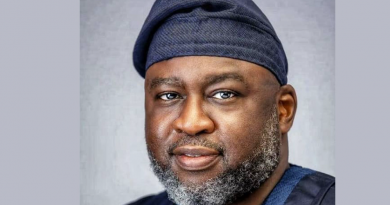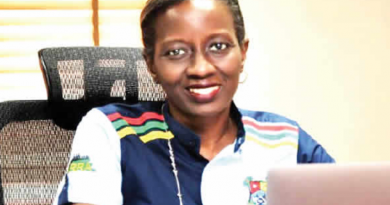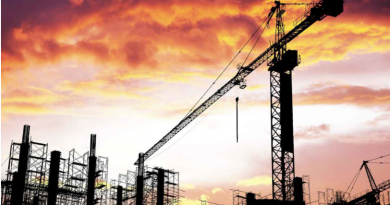Public-Private Partnerships developing Lagos, creating value, says George
Can you shed light on what Public-Private Partnerships (PPP) model is generally and with specific reference to Lagos State?
The Public-Private Partnerships (PPP) Office in Lagos State was set up in 2011. We have an enabling law, which guides how we operate. PPPs are very important because the state cannot put everything on the balance sheet. The state is looking for private capital to help fund some of its projects. They range from hard infrastructure to soft types. It is to help the state put better value on investment and other things that aid development as a state.
PPPs are very important for growth. It’s not just about infrastructure, there are management issues too. It helps bring efficiency to various projects. So, when you have tolls and other infrastructure being built, you also need management. Government is in the business of providing services to its people, so, there’s also a need to manage, and there are some things that are better managed by people with a private sector orientation.
How well have these private capital investors embraced Lagos PPP?
Very well. I am glad to say that Lagos PPP has been well received by the private capital investors. This acceptance is due to a number of factors. One of them is the way the Lagos PPP Office is set up. The PPP Office is a stand-alone and reports directly to the governor. We were the first to have a law enacted through the act of parliament. Lagos PPP was established by the proclamation of the Lagos State House of Assembly, and this gives comfort to whoever is doing business with Lagos State that they are well-protected because there is a law in place.
We have also eliminated bureaucracy and red tapism that used to slow down or stall working with the government. When private investors are dealing with the government and can see professionalism, and see that due process is being followed, they want to stay and do transactions. Before, it was difficult and even discouraging for private sector investors to move from one ministry to another while dealing with the government, but once you know you can come to a certain location and we can pull all other relevant government agencies together to do what needs to be done, it helps the process. So they have embraced it very well.
Are there limits to projects that PPP Lagos can undertake?
I don’t think there’s a limit. Due to our understanding of the peculiarity of our environment and the challenges, we have to be adaptive with the PPPs. So, we started by looking at how PPP is done around the world and we discovered that our system is different. Not everything that worked in western or advanced countries will work here.
Therefore, we have what we like to call people-friendly PPPs. These are the projects the residents can see or feel the impact very quickly. For instance, we have the Awa Bike; it is a bike-share scheme through which we are working with companies to provide bicycles that people use for movement from point A to point B. By and large, the overarching objective of our PPP is to drive overall development of Lagos State for the good and benefits of larger majority of our people.

Ope George
Can you speak on the achievements of PPP Lagos, vis-a-vis, partnerships, projects and impacts?
I am happy to say that we have got some big and major ticket transactions. The two most interesting and exciting ones are the proposed Fourth Mainland Bridge, and the Blue and Red Rail Lines. Once these projects take off and people can see, we will have a lot more investors showing interest in Lagos.
We have also done the Ilubinrin housing project. This is a project of over N3 billion that is targeted at significantly reducing shortage in the housing stocks. In the education sector, we are creating about 8,000 bed spaces in six blocks at the Lagos State University (LASU), Ojo, to provide accommodation for the students.
What are the things you are doing in the transportation sector and healthcare?
Transportation and healthcare are two critical sectors of the economy. The whole idea of our transportation architecture is the intermodal transport system. It is to ensure we have a complete system where Lagosians can move from point A to Z by offering them better transport experience. Lagos is very small in terms of landmass; so, we may not be able to completely get ourselves out of congestion in Lagos. But being able to make the transportation system a bit easier and a lot more user-friendly is what we’ve invested a lot in as a state. I believe it would help once people can move from point A to point Z; you get off the BRT buses, you get on the ferry or train and you get on BRT buses that complete your whole transport experience.
On health, we are doing quite a bit on health infrastructure as well. Apart from trying to improve our primary and secondary healthcare centres, we’ve also realised that, while private capital is coming in to help us develop the facilities, we want to ensure that our citizens can still benefit from what we call ‘Indigene Care Cost’. So, a certain percentage of beds would be reserved for citizens, which Lagos State Government will ensure they benefit from.
We have a lot of citizens of this country going on medical tourism; this is increasing the volume of capital flights out of Nigeria. People are going out for medical advice and to get treatment overseas. We feel if we can keep that in here, it would help the economy and help us as well because, when people go out for these medical treatments, sometimes they get referrals to doctors who are Nigerians. So, if we can keep it here to ensure we train our people and provide good healthcare, the better for us.
This is one of the reasons we are constructing a world-class Medical Park complex at the site of the former Lagos State School of Nursing in Ikoyi to put an end to medical tourism. For us, we think that if we have a place where people feel they can go and get quality healthcare services, it would be a focal point of cutting down on capital flight as well as attracting investment back into the state economy and the country as a whole.




